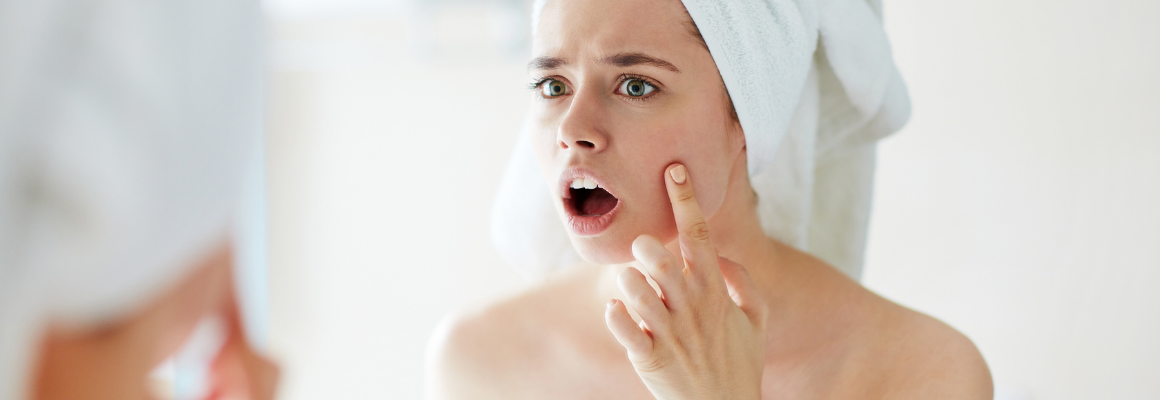Trying to sleep when you’re tossing and turning due to itchy skin is never fun. Unfortunately, the urge to itch can feel worse at night, making it difficult for people to get their much-needed shut-eye.
While it’s recommended to get at least 7-8 hours of rest each night, itchy skin can make this challenging. In addition, the constant struggle to sleep can eventually take a toll on one’s overall health and well-being.
In this post, we’ll explain the importance of sleeping well and offer some natural remedies to improve your sleeping patterns so that you can enjoy a happier and healthier life.
The Negative Consequences of Sleep Problems
It’s no secret that the body needs to rest for it to function correctly. The long-term negative consequences of sleep problems are too significant to be overlooked. On a day-to-day basis, poor sleep can affect one’s mood, resulting in increased irritability and anxiety. However, insomnia can also lead to more significant economic and psychological burdens. People who struggle to sleep report higher levels of fatigue and daytime sleepiness. They are also more likely to experience a more substantial number of sick days and doctor visits. Poor sleep is unfortunately also linked to more psychological disorders and workplace accidents.
Unfortunately, children are not exempt from sleep problems and the accompanying long-term consequences. For example, children who struggle to sleep at nighttime are more likely to struggle with learning disabilities, impulsivity, and daytime behavioral problems. They are also more likely to experience higher levels of anxiety and depression.
Finally, lack of sleep in children is associated with autism and attention-deficit/hyperactivity disorder.
Understanding the Itch-Scratch Cycle
If you suffer from eczema or itchy skin, you are likely familiar with the vicious itch-scratch cycle. So when your body is itchy, it makes perfect sense that you will try to alleviate the itch by scratching. It’s a natural and automatic reaction.
Unfortunately, scratching can damage the skin and increase inflammation, and sets the itch-scratch cycle in motion. The more the skin itches, the more tempted you are to scratch. Yet the more you scratch, the more you increase the itchy sensation. Have you ever noticed that you experience increased itchiness after scratching? Well, this is why!
Research indicates that scratching and pain have a bit of a ying-yang relationship. When you scratch your skin, you subject your body to low-grade pain. This pain temporarily distracts your pain from the itchiness. However, once you stop scratching, the itch comes back even stronger than ever! In addition, intense scratching can cause the skin to crack or bleed, possibly paving the way for infection as the skin becomes more vulnerable to bacteria.
Unfortunately, stopping yourself from scratching yourself raw is easier said than done. But, as already mentioned, scratching to relieve an itch is a natural reaction. Therefore, it’s in your best interest to do everything you can to protect your skin, especially when you may be unknowingly scratching while you sleep.
The good news is that it’s possible to break the itch-scratch cycle. But it will take a lot of determination and effort. So we’ve included our best tips and tricks to reduce itchiness and combat the urge to scratch below – read on!
Does Skin Get Itchier at Night?
Have you ever noticed that your skin tends to feel itchier at night? It’s not just your imagination. Unfortunately, skin tends to feel itchier at nighttime for a few possible reasons. To start with, many people unconsciously scratch their skin while they are sleeping, which can exacerbate itchy symptoms and cause an increase in itchiness.
People may also experience increased itchiness at night due to temperature. This is especially true for eczema-related itching, as eczema and temperature are closely linked. Many people may wake up feeling overheated and subsequently itchier at nighttime. Scientifically speaking, people may experience increased itchiness at night because of a decrease in melatonin secretion. Reduced sebum production can also worsen skin dryness and increase skin itchiness.
Home Remedies to Help You Sleep Better
Are you looking for some home remedies to reduce itching and help you sleep better at nighttime? We’ve got you covered. First of all, we recommend you adjust your bedroom thermostat as the temperature can affect itching. Since everybody is different, it may take some trial and error to find a suitable temperature. However, in general, around 3-5 degrees is a good range. Using cooling pillows or using fewer blankets can also help prevent overheating and allow you to sleep more comfortably.
We also recommend you moisturize directly before bed. Even when moisturizing throughout the day, the effects of a moisturizer can wear off at nighttime. So do your skin a favor and reapply your favorite natural cream before bed to restore moisture to dry skin and reduce itching.
If you enjoy taking a shower or bath before bed, be sure to use a natural soap. Unfortunately, many soaps contain harsh toxins or chemicals that can strip the skin of its natural protective oils. That’s why we love this Coconut and Sunflower Oil Soap Bar. It’s made with just three gentle ingredients: coconut oil, sunflower oil, and shea butter. Free from any added fragrance or perfume, it leaves your skin with a naturally light smell and a soft, smooth touch. It’s the best natural soap for eczema, psoriasis, sensitive skin, dry skin, and more.
Eczema-Friendly Sleepwear
Wearing comfortable sleepwear at nighttime can help you sleep better and give you the rest you deserve.
Here are some of our favorite eczema-friendly garments that you can wear as pajamas to reduce itching and improve sleep:
Remedwear Long Shirt for Kids - This form-fitting shirt provides gentle protection to the arms, chest, stomach, and back. Made with eco-friendly TENCEL and embedded with anti-inflammatory zinc oxide, it also helps boost the healing process. In fact, our ratio of TENCEL and Smartcel™ Sensitive was proven to reduce the severity of atopic dermatitis, reduce itchiness and improve quality of sleep when worn overnight for three consecutive nights.
Remedywear Long Shirt for Adults – This gentle garment features moisture-wicking sweat control, as well as antibacterial and antimicrobial properties. It’s perfect for wearing underneath regular clothing during the day or alone as pajamas to help you sleep at night.
Remedywear Pants for Kids – Step into soothing relief with these stretchy and form-fitting eczema pants. They protect the legs, knees, and buttocks, making them the perfect solution for dry and itchy skin on the legs. Your sensitive skin will genuinely love the breathable fabric that heals itching like a dream.
Remedywear Pants for Adults – If itching is keeping you up all night, try these legging-like pants. They not only protect the skin from scratching but also soothe itchiness and boost the healing process. In addition, you’ll love the moisture-wicking properties that help prevent chafing and sweaty irritation.
Natural Skin Care to Beat the Itch
Our best-selling Organic Manuka Skin Soothing Cream was Medically reviewed by doctors, the oil-based balm is a gentle and effective solution for babies and adults alike. It’s made with just six ingredients - including the ever-powerful Manuka honey. You can use this soothing cream to help reduce itchiness, relieve irritation, and moisturize dry skin. As dry skin is one of the leading causes of itching, the moisturizing abilities of this nourishing cream are super helpful.
If you’re looking for an intense boost of relief, you should include dry or wet wrap therapy as part of your skincare routine. These are effective at-home remedies to provide a boost of hydration to dry skin.
To wet wrap, start by applying a natural cream like the Manuka cream mentioned above to your dry skin. Then cover it up with a wet layer of clothing and add a dry layer over the top. We recommend these hypoallergenic sleeves or any of the Remedywear garments mentioned earlier. This process helps lock in moisture and allows the emollient to permeate the skin better.
For dry wrap therapy, you only need to cover with a dry layer of clothing. Leave the wraps on overnight or for a minimum of two hours. Once you remove the wraps, apply another layer of cream.










